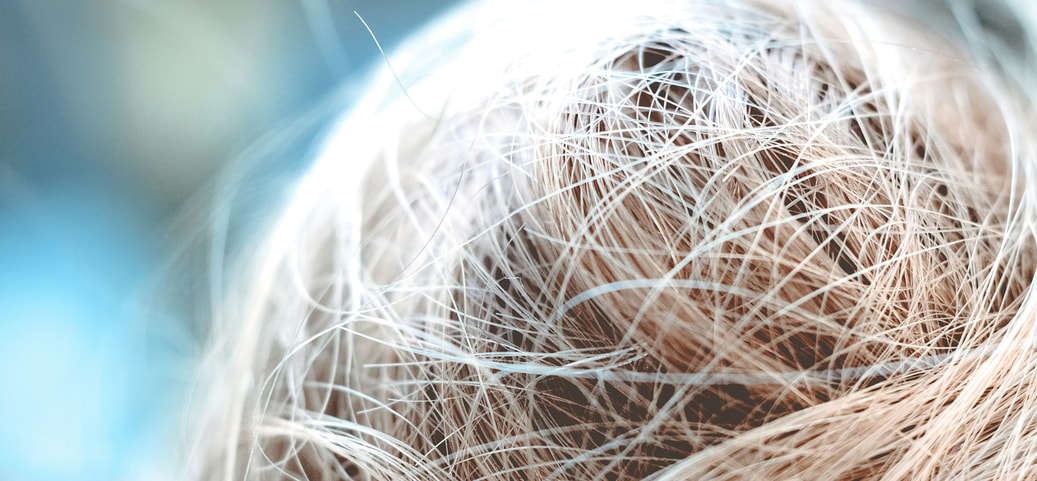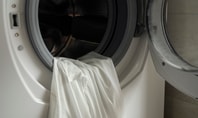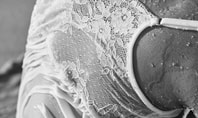Sleeping with wet hair: a good idea?
You’re dead tired, but would like to wash your hair so you can go to bed feeling fresh. But you also don’t feel like blow-drying your hair so late in the evening, and you’re pretty sure that letting your hair air-dry overnight is more gentle than using heat anyway – sound familiar? We explain why it’s a better idea to wait until the next morning to wash your hair or to dry it before going to bed.
by CALIDA
August 14, 2024•3 min reading time

A close-up of fine, distributed hair in natural blonde tones.
Table of Contents
Wet hair in bed is unhealthy: myth or truth?
When you were a child, did your parents always tell you that you should go to bed with dry hair? This was certainly the case for many, but not for the reasons that doctors now give in favour of sleeping with dry hair.
While many people used to think that a chilly sleeping environment and wet hair could lead to getting a cold, we now know that this is not true; unless we are exposed to cold viruses, we won’t catch a cold even if we have soaking wet hair. Nevertheless, having wet hair in bed is not a good idea. Find out why below.
Moisture and heat can cause germs, bacteria and fungi to spread rapidly. Although a single night with wet hair is unlikely to cause an immediate yeast infection on your scalp, constantly sleeping with wet hair can lead to psoriasis, fungal acne and other scalp problems. If you leave your pillowcase on after sleeping with wet hair, you end up sleeping on the bacteria again the next evening.
So keep in mind: the myth that sleeping with damp hair is unhealthy is true, but primarily because of your scalp, which is much more susceptible to germs when wet and warm. If there is simply no getting around it, be sure to replace your pillowcase with a clean one as soon as you get up and sleep with dry hair the next night.
Freshly washed hair is particularly delicate
In addition to the formation of germs and fungi, sleeping with wet hair has another, more cosmetic disadvantage: depending on the condition of your hair and how well you look after it, sleeping with damp hair can lead to split ends and hair breakage much more quickly.
Because washing your hair opens up its cuticles, friction is the last thing your strands need at this time. Tossing and turning in your sleep can lead to knots and hair damage. If you’re thinking about simply putting your hair in a plait to protect it, we have to advise against this as well.
Plaiting encourages pulling on your delicate hair and destabilises it further. In addition, wet, plaited hair dries even more slowly in bed. So if you go to sleep with wet hair, it’s a good idea to also avoid this hairstyle.
How to protect your wet hair before going to bed
It’s best to avoid going to bed with wet hair for the sake of your health and the beauty of your hair. However, if there’s no way around it, there are things you can do to protect your hair as much as possible:
Dry your hair as best you can before bed (ideally with a microfibre towel).
Use silk pillowcases, which allow the hair to glide over them more easily, preventing friction.
Use a conditioner to close your hair’s cuticles after shampooing.
Apply a hair oil or coconut oil after washing your hair to prevent breakage.
Change your pillowcase after sleeping with wet hair and dry your hair as quickly as possible the next morning.
Even though our tips can get you through a night or two with freshly washed hair, you should get in the habit of practising a different routine in the long term. If you still want to feel fresh, it’s better to just wash your body in the evening and postpone washing your hair until the next morning.
Discover more interesting blog posts:


